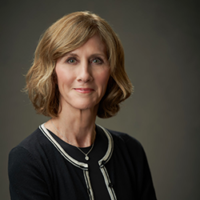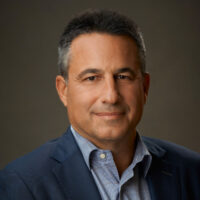As a global nonprofit working in over 80 countries, Cognia brings together 36,000 institutions that serve and support nearly 25 million students and five million educators every day. Our education experts work directly with institutions in accreditation, school evaluation, and student assessment; we are staunch advocates for student-centric learning.
As such advocates, Cognia wanted to give a platform for student voice so that you could hear directly from students about how the coronavirus pandemic is impacting students who are out of school. Nine students from across the globe were invited to participate in a virtual panel Schooled: Students Speak up to discuss the impact COVID-19 is having on their lives. Students from the United States, South America, Europe, and the Middle East were asked by moderator Dr. Mark A. Elgart, president and CEO of Cognia, to give their best advice to the leaders who now are responsible for making decisions that will impact their lives today and in the future, about how we move forward from this pandemic and try to return to life in a stable, secure, and safe way.
These young scholars from vastly different backgrounds share common concerns, and discuss differences in their experiences, what they have learned about themselves, their approach to adjusting to virtual learning, being home, and preparing for their futures. Here is their best advice for their schools and leaders edited slightly for length and clarity.
What Students Want You to Know
“If I could tell leaders, political leaders from around the world how it impacts us I’d probably just ask for them to think about their past, and when they were a high school student and think about how this would have affected them in their education but also personal relationships and think from that point of view when they make those decision for millions of high schoolers across the globe,” said high school senior Zachary Boston.
Faisal Al-Bizioui, a rising freshman from Riyadh, Saudi Arabia, who was quick to downplay his qualifications to answer the question, recognized the difficult situation leaders are facing with regard to balancing the economy and the safety of people. With respectful deference, he humbly stated “I would advise leaders to consider the people they are serving and the demographics surrounding them, and to know the percentage of people at greatest risk, and to develop ways to get those people to safety as efficiently as possible.”
Kennedi Chadwick, a 10th grade student in Florida, urges leaders to “Take your time to come to a decision, and please think everything through and consider how the changes you might want to make will affect different kinds of people.”
Take your time to come to a decision, and please think everything through and consider how the changes you might want to make will affect different kinds of people.
—Kennedi Chadwick, Miami, FL.
“Actions should have been taken before it was too late, and right now we are suffering from the consequences of action taken too late so I would tell them…they have a second chance if this ever happens again. We’ll hopefully do better than this time and there is hope for the virus to end someday,”
Matthew Ashby from Michigan, who wants to pursue a career as an artist, says, “Look at the entire nation as a whole; don’t just focus on a handful of people and how they are doing; don’t just look at the minority of people, don’t just look at the majority of people. Look at everybody. To be more apt about it, like Lisa said we are suffering from the consequence for not being as prepared for something like this on this major scale, but that also means we have to look at this like it’s a major problem.
What Should Schools Keep Doing?“Something schools are doing now with the online schools is they are giving students more independence, and freedom, and flexibility and that’s definitely a positive thing that has come from this that they should keep doing.” “It’s very important that schools keep encouraging students to go to their counselors and talk about how things are going and how this has impacted their lives, and improving those services that school offers for students to feel like they are safe.” “Keep being transparent with situations. A lot of time when adults are dealing with high school students they like to sugar coat things.” “Keep serving lunches because there are kids who can’t get food at their house.” “Keep Investing in technology.” “Keep listening to us.” “Keep building a sense of community around the school.” |
What Should Schools Stop Doing?“Stop seeing a problem on the horizon and saying we’ll cross that bridge when we get to it before you take action. We’ve got to be more apt about being more prepared for things like this.” “Stop giving homework based on memorizing things.” “Stop using the teacher talks for the entire class, students takes notes, and then we get tested or quizzed…that’s not the best form of learning… this instance has proved that we can learn more through interactive projects.” “Put more of a focus on learning and less on busy work.” —Kennedi “Less memorizing, more working on research. Memorizing gets to a point where it’s pretty useless becaue we can just look it up.” “Stop killing the interest that students have in books. This quarantine has been very useful to helping me realize that I love to read but schools tend to make books something uncool because they like to send out assignments just for the sake of sending them. It actually makes students not like reading. But when I do it for fun I have realized that it has improved how I live and I really enjoy it.” |
What Should Schools Start Doing?“Interactive learning.” “Put more emphasis on learning and less on busy work.” “Place more ownership and responsibility on the students but with that goes more independence and freedom. We can do this work alone it prepares you for college and also for life. You start that responsibility earlier and become more mature sooner.” “Mindfulness courses, wellbeing courses, or courses that just let students breath for a minute …and learn a lot about themselves.” |
Worth Listening
When asked what would you change if you were principal for the day, “I would change…the way students are treated,” said Lisa. “We are people before we are students and we have hard days; we have days where we can’t work and we can’t give our best, and for teachers to understand that we are people before we are students.”
Student voice is incredibly important for schools; students provide an invaluable perspective that we as parents and teachers should, must, and do listen to every day. As school leaders consider reopening in the fall, there will be lots to consider in order to do so safely and with thoughtful consideration to the myriad of challenges we face. Matthew Ashby wanted to be sure to let teacher know to “Take care of yourself. You are an important person. Your mental health is important. Take care of yourself.” Zachary echoed that sentiment and added “I appreciate what teachers are doing for us. We all know that you care and want the best for us; know that we appreciate that.
All of the students we spoke with look forward to going back to school or off to college.
Zachary Boston, who will attend Brown University in the fall shared “I’ve discovered what I need to do to make me happy. I was pretty spread out doing a lot of clubs. I will probably never take things for granted again. I would probably do anything to go back to school; I’d take a final every day. I kind of took my high school experience for granted.”
So what can we as adults do? It’s time to reimagine school. It’s going to be really hard to return to what was. We need to learn from this and we have to have the courage to imagine what could be.
View all of the students’ remarks on their best advice to leaders here and the entire virtual panel Schooled: Students Speak Up! on the Impact of COVID-19.
© Cognia Inc.
This article may be republished or reproduced in accordance with The Source Copyright Policy.
The information in this article is given to the reader with the understanding that neither the author nor Cognia is in engaged in rendering any legal or business advice to the user or general public. The views, thoughts, and opinions expressed in this article belong solely to the author(s), and do not necessarily reflect the official policy or position of Cognia, the author’s employer, organization, or other group or individual.


